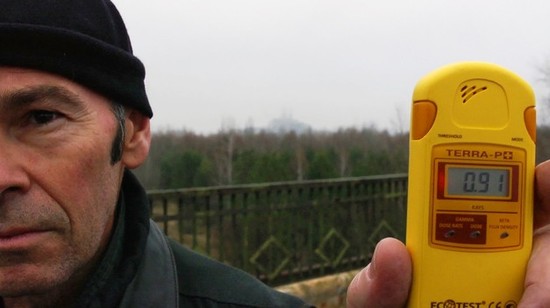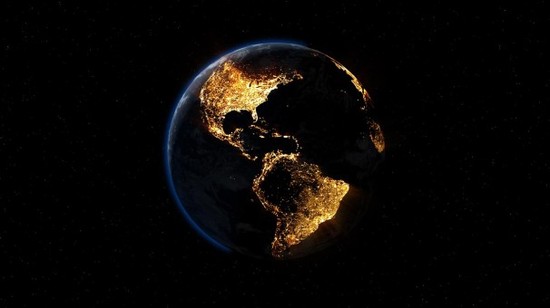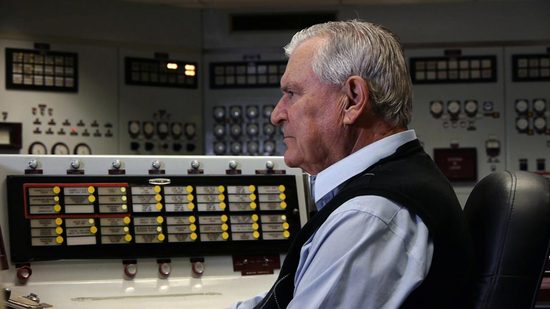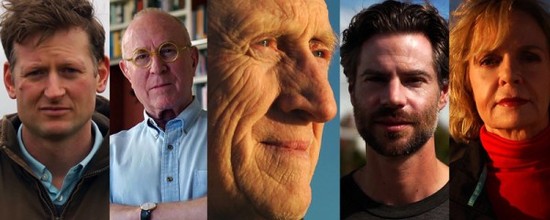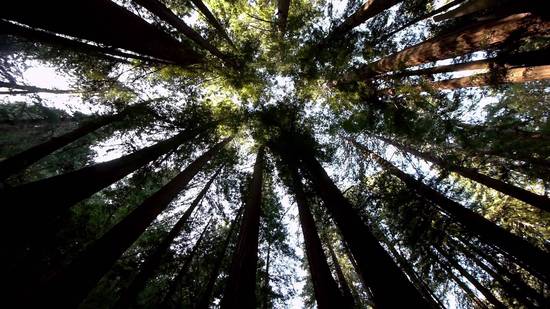There are few things more important than the energy that powers our civilization. And yet, generating that energy involves difficult trade offs between human progress and the environment. Whether it was Prometheus who stole fire from the gods or Pandora who opened Zeus' box, the human desire for knowledge and development has often conflicted with nature's implacable will.
Nothing symbolizes this more in the modern age than nuclear power. Academy Award-nominated director Robert Stone's provocative new documentary Pandora's Promise, airing November 7th on CNN, takes a surprising look at this most controversial of energy technologies. I saw Pandora's Promise earlier this year at the Sundance Film Festival and interviewed Robert Stone in person about this much-debated film.
Pandora's Promise interviews a series of notable environmentalists who were formerly anti-nuclear activists but who changed their minds and became proponents of nuclear energy (director Robert Stone himself made this journey). Stewart Brand, Michael Shellenberger, Mark Lynas, and Gwyneth Craven make their case for why nuclear power (which gives off no CO2 emissions) is the best option for fulfilling the rapidly growing energy needs of the planet without increasing fossil fuel consumption.
Although I had a considerable bar of skepticism to overcome given the high-profile nuclear accidents that have occurred, the film did take the time to examine these. Stone and his subjects traveled to the Three Mile Island, Chernobyl, and Fukushima nuclear plants and examined the design flaws that led to their infamous accidents (Chernobyl, for example, had no containment structure). The film argues that such reactors would never be built today.
Pandora's Promise also interviews nuclear scientists about what it states are the vastly better fourth generation of nuclear reactors (for which Bill Gates is funding some of the research) that can recycle their own fuel and are impossible to melt down. The film contrasts this with the thousands of coal power plants that are being built in China and the developing world today at enormous environmental cost.
While I don't know if nuclear energy is the answer (I'd like to know a lot more first), Pandora's Promise did open my eyes to the costs of renewable energy, such as with wind and solar (wind uses oil and gas-powered backup generators, solar panels are toxic to manufacture). It also inspired me to think that there may be cleaner, more high-tech options on the horizon to generate energy -- options we don't even know about, but that are worth rigorously investigating.
Beyond the specific issue of nuclear energy, however, the most interesting aspect of Pandora's Promise is that it highlights the ethical imperative of using science to lift billions of people around the world out of poverty. This focus on improving human lives and alleviating poverty is notably missing from many discussions of the subject.
For example, when I lived a year in Borneo as a teenager while my mother worked on an agricultural development project, the tribes-people we visited in the rainforest would raise the question: why should they remain poor and undeveloped while we in the West enjoyed all the comforts of electricity and technology? Similarly, a bright and idealistic cousin of mine who works in the electric utilities field in India asked me what right the developed world has to demand that India not build more power plants when electricity is crucial to improving the lives of hundreds of millions of their poor?
Given that the greatest increase in energy consumption is coming from China, India and the developing nations of Asia, Latin America, and Africa, we must find a reasonable answer to this question.
Michael Shellenberger and other experts in Pandora's Promise ask why the global south should be prevented from acquiring cheap and plentiful non-fossil fuel energy. They note that access to electricity is a key factor in running medical clinics, schools, and the myriad technologies that lengthen and improve the quality of life. Shellenberger theorizes about nuclear energy: "We can have a world where some 10 billion people can live high-quality, resource-intensive lives without killing the environment." Pandora's Promise calls for a middle ground between the extremes of ideology when something as important as reconciling human development with the environment is at stake.
Robert Stone further elaborated on these issues when we spoke at the Sundance Film Festival about Pandora's Promise. The interview has been edited for length.
GM: What has the impact been of changing your mind on this important issue?
RS: Well, it's been a long process for me. I was never an activist, so I was never out there marching in the streets. My career was launched with an anti-nuclear film in 1988 [Radio Bikini]. That was an anti-nuclear weapons film, not anti-nuclear power, but we certainly conflated the two things. I did, and it informed my worldview. So, yes, it's a risky thing for me to come out and say this, but it's true, and somebody needs to shout this from the rooftops. We can't just go on with ideological blinders on while the climate grows worse and worse, damaging the Earth more and more. And things that should not be political issues are politically polarizing. I think this film kind of cuts through the political morass as well as addressing the issues itself.
GM: One of the most striking comments you make in your Director's Statement is that Stewart Brand introduced you to "a new and more optimistic view of an environmental movement that was pro-development and pro-technology." Could you tell me more about that?
RS: The philosophy of the environmental movement has always been that it deifies Mother Nature. It's the idea that nature is good and pure and man, modern civilization, is a cancer on this pure, pristine thing called the natural world. And we should feel bad about this, and we should retreat back to a more harmonious life that is an idealized, agrarian, 19th century life where we're getting all our energy from wind and solar, and we'll all eat organic food and live in small communities, and we'll retreat. That is the philosophy.
I would call that the Romantic view of environmentalism. And what we're ushering in here is a more Enlightened view of environmentalism, which says, look, we're here, human beings are here, and there's going to be more of us and we're going to need more energy, we're going to be putting more stresses and more demands on the planet. That's reality. It's going to happen. We need to lift billions of people out of poverty, and we're going to consume more resources doing that. We can't leave these people behind. How do we do that -- and not destroy the environment? And the way to do that is to use high technology, not by rejecting high technology. The key is energy -- and why not use a source of energy that is environmentally benign and that basically can power civilization forever? Why do we reject it? Well, we reject it for a whole host of political and ideological reasons that frankly are completely out of date.
GM: The two different viewpoints that you've alluded to appear to be the Romantic, or Rousseauian view, that sees Nature as the ultimate good, and anything humanity does to move away from nature, any form of civilization as being inherently corrupting and enslaving - and the Enlightenment view of Locke and others who see civilization and technology as ennobling things that improve human life. ... Your film also shows a striking set of graphics of the world 10 - 20 - 50 years from now, what the energy needs will be ... and it's really shocking. Let me ask you about some other forms of energy. Did you talk at all to scientists about things like antimatter reactors, positron reactors? There is research into them, and they use even less fuel than nuclear.
RS: I think we've got tons of things on the horizon that we cannot even imagine. The reason we told the story of the IFR -- the Integral Fast Reactor in the film -- is it's a great example of a fourth generation reactor that billions of dollars was put into. We developed it, we made it work, the whole thing's there. GE has actually commercialized it. It's called the Prism. They're ready to go, but it was cancelled for political reasons. Fifty years from now is going to be too late. We need to do this now. In fact now it's already too late. We're going to have to do this right now and we're going to have to prepare for rising sea levels. But to put off on scaling back on fossil fuels dramatically for another fifty years -- that just cannot happen. ... There are also other kinds [of reactors]. There are these small modular reactors, small modular light water reactors that work, too. There are all kinds of new nuclear technologies that are very, very exciting. We've just got to get the political will to start and begin to market them.
GM: I appreciate what you said about how this should not be a political issue. And yet on the left it's been identified with the environmental movement and on the right it's been identified with energy companies. I thought it was refreshing in the film that you were quite agnostic in approaching these issues.
RS: You know, there's no reason for this to be a political issue. We all have children, we all want the future to be better. There's nothing political about this at all. It's just because climate change became identified with the left for a variety of reasons. Going back to the '70s, the left wanted wind and solar, and when climate change came along they did use it as a tool to get people to promote wind and solar -- and that's a fact -- and the right has always been in favor of nuclear power and saw those [wind and solar] technologies as ineffective and therefore concluded that climate change must be a hoax. So that happened. I don't think Al Gore being the public face of climate change did a great service to anyone in terms of depoliticizing this. So, there's really no reason. The Sierra Club started off being pro-nuclear in the '60s because they saw it as a good alternative to building dams, which is what they were organized against.
GM: As you say, we all want the world to be a cleaner and a better place. You say that you can have both: you can love nature but you can also accept progress and science.
RS: It's the only way to preserve nature, at this point. Unless you believe that we can retreat and go back to this way of life that probably never was in the first place -- and completely write off the developing world. ... The environmental movement has just not addressed lifting billions of people out of poverty. You look at what needs to be done, and they just go, "how are we going to feed all these people," you know, wishing it would go away. And so that to me is a very negative and pessimistic and apocalyptic vision that has infused environmentalism and that has got to go. I'm not going to follow somebody who thinks we're doomed. And many of them do -- they think we're doomed.
GM: That's the Malthusian viewpoint. I prefer the optimistic viewpoint, because the way of nature and the human race and all species is to expand outward: acquire more knowledge, acquire better ways of living. What do you think of expanding outwards by going to other planets?
RS: We'll see -- that's a great point! And I point this out: this Romantic vision -- where man is bad and nature is good, it completely ignores the Beatles, the Sistine Chapel, the fact that we understand the universe and have figured out the Big Bang. There is a way to look at humanity as nature's greatest accomplishment. And not as nature's cancer.
GM: Thank you for saying that. I love nature and the environment, but I've been concerned about a strain in the environmental movement that talks about humanity being a virus on the planet, that talks about a Green Genocide. So far as we know, we are the only intelligent beings in the universe, and Ray Kurzweil says we may actually be the most advanced beings in the universe.
RS: It's entirely possible that we're the only things in the universe that know the universe is here. You know, that's a pretty cool thing. ... I think what I'm advocating is an Enlightenment of the environmental movement. And I think that's happening. And I think we're reaching a tipping point because this is becoming so obvious to everybody that something dramatic needs to be done and that what we've been doing is not effective in the least. So I'm hopeful this film can help that happen.
Pandora's Promise has its global broadcast premiere this Thursday, November 7th on CNN and is also currently screening in select cities in the U.S., U.K., and Europe.
